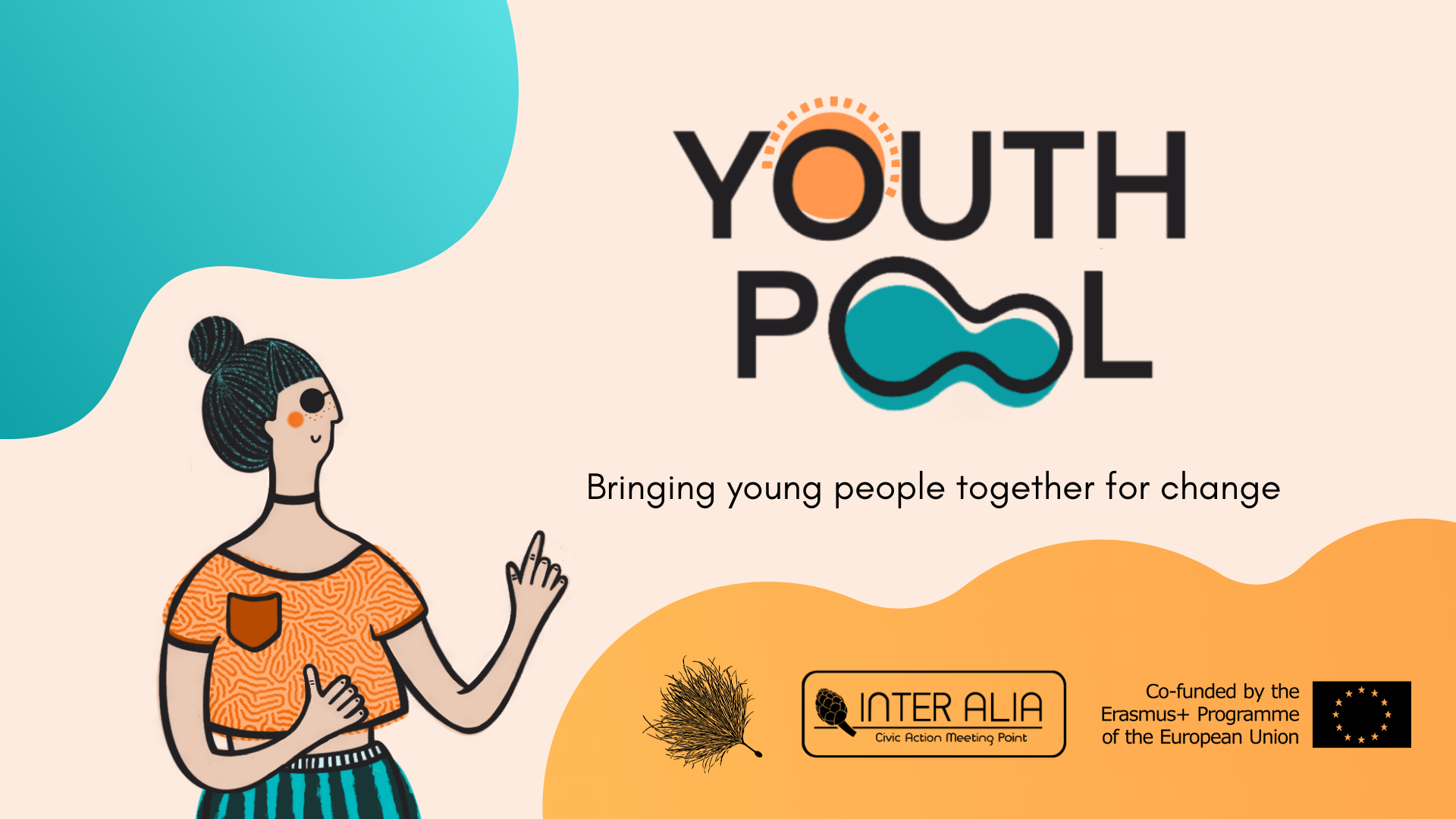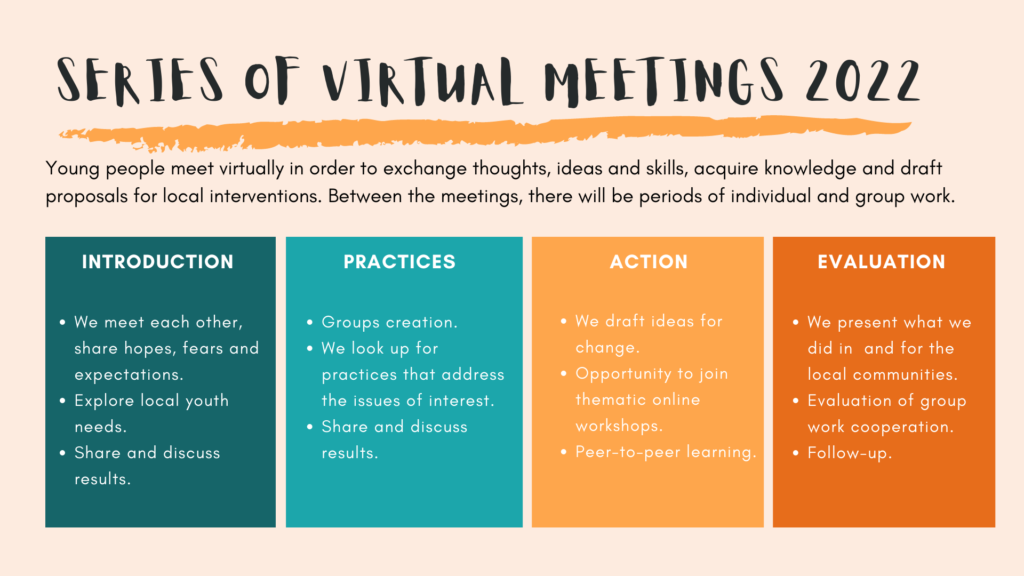
In a period of 6 months, the Youth Pool participants explore the challenges in their community, meet people from all over the world, share knowledge and experiences, connect and collaborate with the local community and implement local interventions to advocate for youth rights and change.
Youth Pool includes a series of virtual meetings (each one building on the achievements of the previous) including non-formal activities, teamwork, expert consultation, and fieldwork:
- Introduction: 10 & 24 March, 15.00-16.30 CET
We meet for the first time to get to know each other and explore the needs, habits and preferences of local youth. We share tools for better researching these needs and share our discoveries. We split into working groups based on their interests.
- Practices: 5 & 19 April, 15.00-16.30 CET
We split into working groups based on their interests. We learn how to look up practices and policies related to the issues of our interests. We share and discuss the results identifying key points and elements that work in our local and thematic context.
- Action: May/June – TBC
We draft our ideas for change and become more active in our community. We join online workshops such as critical thinking, project writing, tools for advocacy and political participation. We identify knowledge gaps and needs for further skills development.
- Evaluation: 14 October, 15.00-16.30 CET
We present our activities and projects we did in our community. We evaluate the process of teamwork and the outcomes of these interventions. Young people are going to connect with other young people, engage with their local communities and get empowered to envision and work for the desired change.


Read more about Youth Pool here.

“Funded by the European Union. Views and opinions expressed are however those of the author(s) only and do not necessarily reflect those of the European Union or the European Education and Culture Executive Agency (EACEA). Neither the European Union nor EACEA can be held responsible for them.”


)
)
)
)
)
)
)


